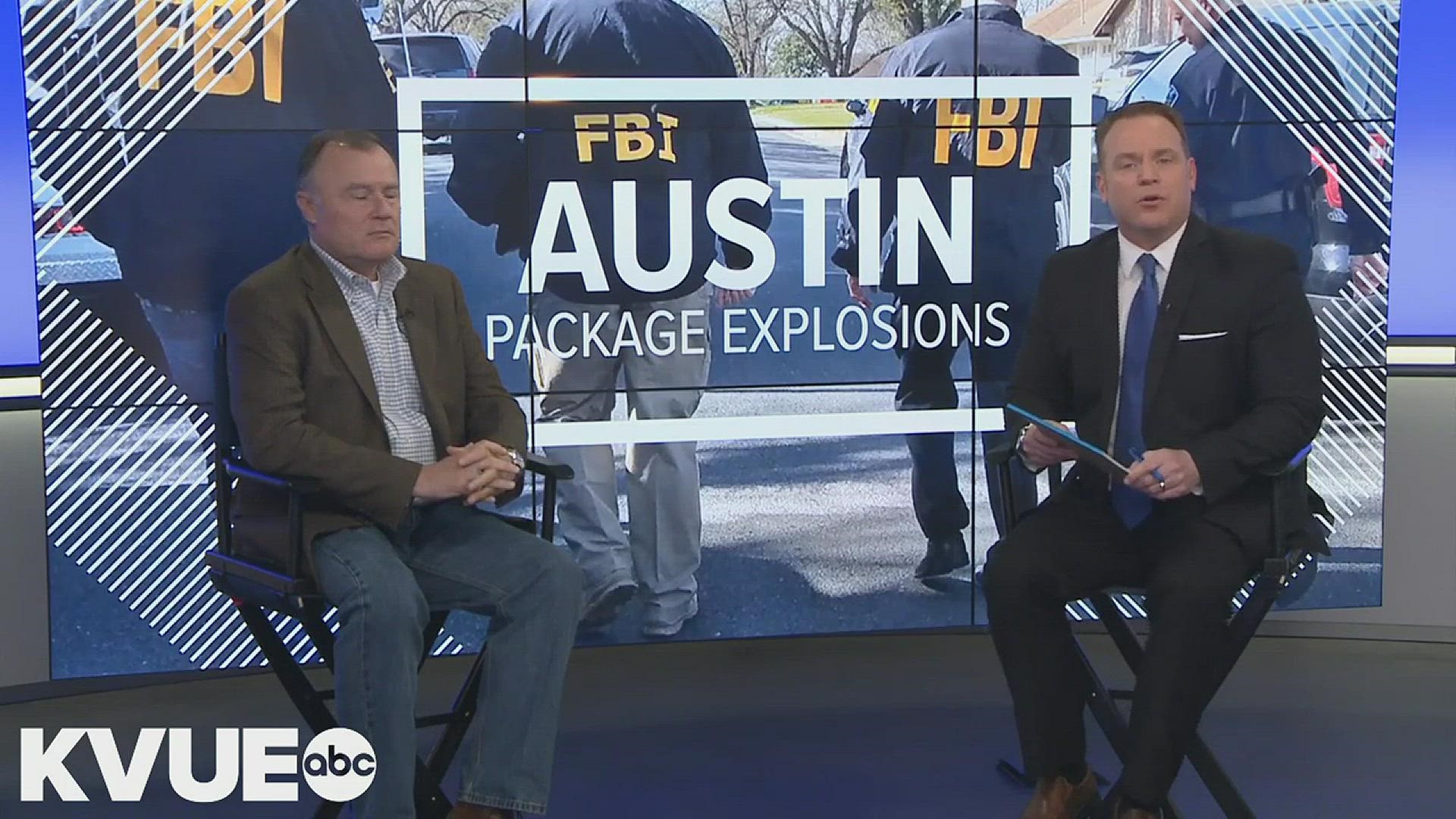Following a string of package explosions in Austin, the eastside community is on edge and looking for answers.
Fred Burton, the chief security officer with geopolitical intelligence platform Stratfor, is known as "one of the world's foremost experts on security, terrorists and terrorist organizations." He joined KVUE's Brian Mays to give his analysis of the March 2 and March 12 explosions in Austin.
RELATED:
Deadly northeast Austin home explosion caused by 'package,' police say
'Innocent people are being hurt': Police say 3 Austin package explosions could be connected
TIMELINE: Package explosions in Austin connected, police believe
A few days after the March 2 incident, authorities said it could have been self-inflicted. Now it's being classified as a homicide.
"The urgency factor kicks in when the second bomb goes off," Burton said. "From an investigative perspective remember you're going to have your federal partners look and examine the evidence so it's going to be placed in the queue with all the other bombings that happen in the country. So the urgency to find this bomb maker doesn't kick in until the second bomb goes off."
Following the two explosions that were reported within hours of each other on March 12, officials said they currently do not have any suspect or vehicle descriptions at this time. Burton said that quickly in the investigation, authorities will know what happened and what exactly the device was.
"By close of business (Monday), you will have a good composition of exactly what took place and ATF, the FBI and APD will know exactly what kind of bomb this is," he said.
Burton said getting explosive devices to work is not an easy task.
"This is somebody that has experience in dealing with bombs," he said. "Either he has practiced enough, perhaps has received some kind of military training, or he has studied bombs to get them to work right. It takes a lot of practice to get them right. "
The locations of the explosions could also indicate something to investigators, Burton said.
"You have a geographic profiling of a first bomb in the north then we have the attack cycle moving south," he said. "Is that because the bomb maker travels that route every day, because maybe he has a job? Bomb makers leave unique signatures, meaning how the bomb is constructed, the timing device, the firing train, the batteries, the forensics on the paper that's written, and the autopsies of the victim's that have survived as well as those that have passed away."

